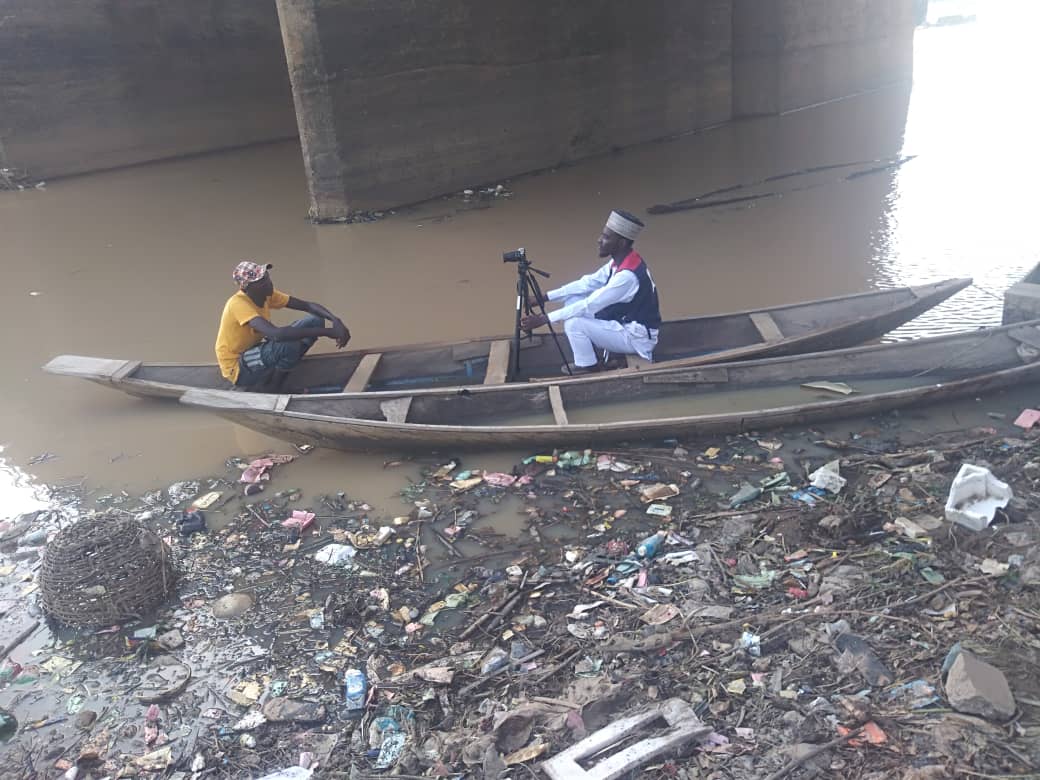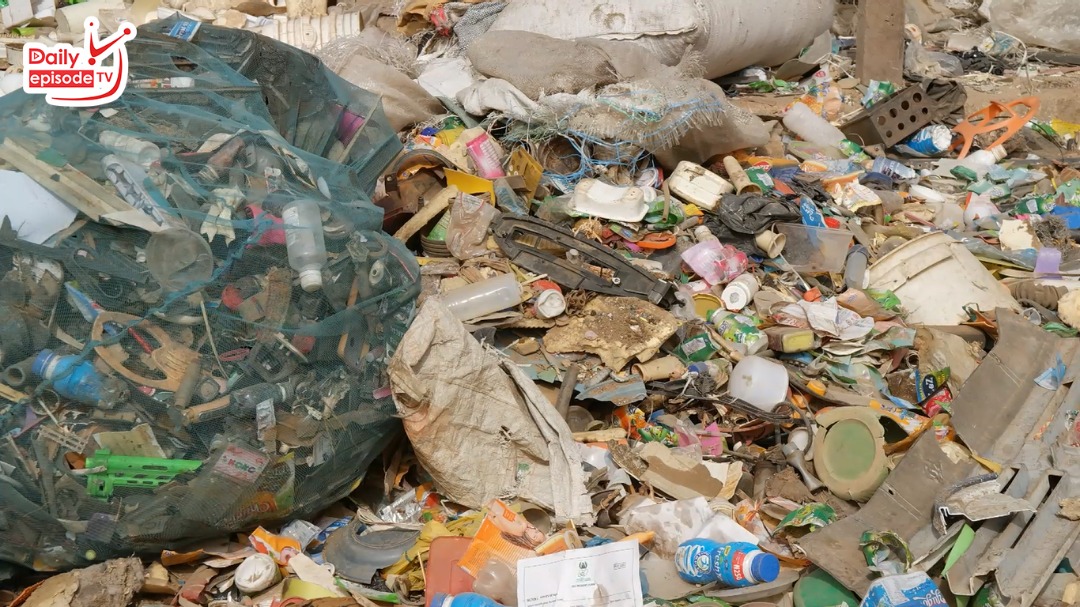As the world battles to fight the threat and crisis of climate change in this 21st century, the habits of illegal dumping among African communities are rising, with effects on the environment and economy equally responsible for many of the health challenges bedeviling the continent, with Nigeria as the most vulnerable.
Disposing waste into waterways, drainages, and streets has become the norm in many parts of Nigeria, just like in Kaduna, a state in northwest Nigeria, where Daily Episode correspondents tracked a ten-year-old boy, Musa Ahmed, in Rigasa, a community with the highest number of residents.
The teenager was sent to dispose of the solid waste into a gutter next to their house with the hope that rain would fall to flush away the waste full of plastics, nylon, and sachets. With such irregularities, many communities risk flooding during heavy downpours.

Like Musa’s mother, millions of Nigerians from motor paks, hotels, restaurants, and markets practice the habit of improper waste disposal despite several calls by the government in the wake of recycling.
In an interview with Daily Episode, the director-general of Kaduna state environmental protection agency, Hajiya Hafsat Abubakar, reveals how they made a series of arrests while fining defaulters for illegal dumping across the state.
We have recently introduced house-to-house waste collection. The program will be responsible for ensuring a hygienic atmosphere while converting waste into cash from recycling. She added
But our investigations show no proper waste collection centers built-in communities by the governments as residents dump the waste on busy roads, market gates, and other strategic places where the contractors come for evacuation.

The Health Challenge
According to a report by the World Health Organization, Nigeria recorded 31.9% of deaths caused by malaria in the year 2020, with children under the age of 5 being the most affected.
These figures can be attributed to the illegal dumping of trash in communities. However, illegal dumping sites breed mosquitoes, flies, and other harmful animals that carry diseases like rats, shrews, and wall geckos.
However, malaria, yellow fever, and other life-threatening diseases are frequently encountered by the illegal dumping of trash, raising fears of possible disease outbreaks on account of indiscriminate waste disposal.
Erosion, Pollution, and Climate Change Action
According to a report released by Global Forest Watch, Nigeria lost 97.8kha of natural forest, equivalent to 59.5Mt of CO₂ emissions in 2020, compared to 10.9Mha of natural forest in the year 2010.
Typically, illegal dumping causes significant run-off in drainage systems during the rainy season, making areas more vulnerable to flooding when waste clogs ravines, creeks, culverts, and drainage basins.
There are several implications for the climate change caused by illegal dumping in communities, as several solid wastes end up in landfills, contaminating the land, harming both animals and plants, and blighting our landscape.

In the year 2021, Daily Episode reported how erosion and floating washed away the remains of over a hundred corps at a cemetery located in the Igabi local government area of Kaduna State. Although the community has been hit badly by flooding, landslides, and erosion, a situation that forced hundreds of people to vacate and flee their homes, forcing many to become environmental migrants.
Agriculture and fishing businesses are dying from the mess.
There has been a decline and huge losses experienced by Nigerian farmers in the year 2020. A report compiled by SBMIntel and published by Premium Times shows that nearly 80% of farmers were affected by extreme climatic events such as flooding and drought.
The reports show no fewer than 500,000 hectares of farmland were destroyed, with an estimated N5 billion lost.
Similarly, illegal dumping of waste on the waterways has seriously contributed to a decline in fish production on the River Kaduna, a major fishing point for fishers in the state.
While Daily Episode correspondents visited River Kaduna, a lot of trash, full of plastics and sachets, drowned in the river from communities with an illegal duping attitude was seen.

In an interview with a fisherman, Salisu Yusuf (Shago), who decries the decline in fish production due to the waste that hinders their only means of living.
Shago, who took me on a route on a boat, disclosed how they work to sanitize the river daily by picking up the waste on a boat and how it has seriously affected their business considering how they invest in timely sanitizing of the river with the daily increase of waste.
He called on the government and the environmental protection agency to ensure a safe environment for species on water, reiterating the need to enact a law that will protect households from flooding as well as their only means of living.
The Possible Solutions
Building proper waste collection centers in both rural and urban communities and collaborating with recycling companies while inviting more investors will possibly curtail the lingering issues to provide a healthy atmosphere.
However, according to Rob Opsomer of the Ellen MacArthur Foundation, no fewer than 78 million tonnes of packaging plastics are produced every year globally, out of which only 2% of the world’s plastic waste is recycled annually, while about ⅓ of the remaining percentage gets landfilled and at-row waste plastics pollute the environment
Nigeria needs a strong waste management structure that will provide safer, healthier working conditions for scavengers on uncontrolled dumpsites.

Therefore, investing in recycling can significantly reduce the rate of solid waste and illegal dumping among communities in the country, which will drastically reduce the rate of contact diseases and climate change.
In Kaduna and northern Nigeria, the people named Yan Jari Bola, who are the suppliers of scraps and recycled waste, need more capital to enter every angle of the zone while changing the lives of many by converting waste to wealth.


































